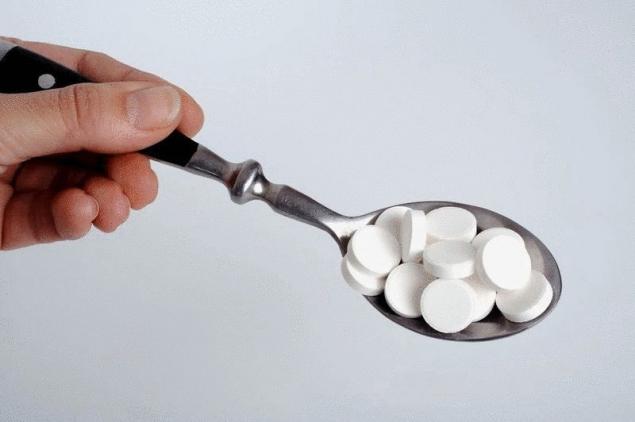432
Artificial sweeteners can cause obesity
The intestinal microflora is reacting to the artificial sweeteners can induce metabolic disorders leading to obesity and diabetes.
Sugar substitutes are deemed to counteract the obesity and diabetes – with such substitutes that have no calories, you can reduce the consumption of sugary carbs that threaten our metabolism. However, as suggested by researchers from the Weizmann Institute (Israel), some sweeteners not only does not reduce the risk of diabetes, but even on the contrary, its increase.

Elinav Eran (Eran Elinav) and his colleagues fed mice several varieties of sugar substitutes – saccharin, aspartame and Sucralose. While the animals were kept either on normal food or on fat, some mice were given water with glucose, or a mixture of glucose and saccharin. After 11 weeks it turned out that the mice that were given sugar substitutes, are worse to endure the usual carbohydrates in their cells were made incapable of digesting glucose, which is one of the main signals of type II diabetes. The same thing happened with the mice who were given water with glucose and saccharin: problems with metabolism they manifested more of what the mice who drank water with glucose.
However, no abnormalities in carbohydrate metabolism did not arise if the animals were treated with antibiotics against the intestinal microflora. Conversely, if bacteria from the intestines of mice, zakormlen saccharin was given to mice deprived of their bacteria, the latter had problems with carbohydrate metabolism. The experiments with mice, researchers have reinforced the clinical statistics found that among people there is a certain correlation between the use of sweeteners and metabolic problems, like the emergence of overweight and inefficient glucose metabolism.
However, such correlation has not said that what was the reason. Because you can reason and so that people with obesity refers to the diet and starts instead of the usual sugar are sweeteners and, in this case, disturbances in the metabolism are the primary sweeteners are only a consequence. To clarify the causal relationship between them, the authors have put a small experiment with seven volunteers who had no problems with the metabolism and overweight and who have agreed in the week, each day to consume the maximum acceptable daily intake of sweeteners. As a result, four of the seven people had problems with the assimilation of glucose, and changes in the intestinal microflora testified about the increased risk of metabolic disorders.
However, the other three participants in the experiment, nothing happened, which means that the influence of saccharin similar substances on the metabolism to some extent depends on the individual characteristics of the organism. One should not lose sight of the fact that the number of volunteers was very small, so that this experience can be considered preliminary for future, more ambitious research.
That the metabolism and all sorts of trouble associated with it, depend on the state of intestinal microflora, has been known for a relatively long time, and wonder here what that is, it turns out that the microflora may be so sensitive and even on sweeteners. However, the specific mechanisms involved, remains to be seen – at least in order to understand how to deal people with overweight and diabetes, forced to use substitutes. At the same time we will not forget that the list of such substances is extensive, and some of them can be in this sense quite harmless.
The results published in the article in Nature.
Source: nkj.ru
Sugar substitutes are deemed to counteract the obesity and diabetes – with such substitutes that have no calories, you can reduce the consumption of sugary carbs that threaten our metabolism. However, as suggested by researchers from the Weizmann Institute (Israel), some sweeteners not only does not reduce the risk of diabetes, but even on the contrary, its increase.

Elinav Eran (Eran Elinav) and his colleagues fed mice several varieties of sugar substitutes – saccharin, aspartame and Sucralose. While the animals were kept either on normal food or on fat, some mice were given water with glucose, or a mixture of glucose and saccharin. After 11 weeks it turned out that the mice that were given sugar substitutes, are worse to endure the usual carbohydrates in their cells were made incapable of digesting glucose, which is one of the main signals of type II diabetes. The same thing happened with the mice who were given water with glucose and saccharin: problems with metabolism they manifested more of what the mice who drank water with glucose.
However, no abnormalities in carbohydrate metabolism did not arise if the animals were treated with antibiotics against the intestinal microflora. Conversely, if bacteria from the intestines of mice, zakormlen saccharin was given to mice deprived of their bacteria, the latter had problems with carbohydrate metabolism. The experiments with mice, researchers have reinforced the clinical statistics found that among people there is a certain correlation between the use of sweeteners and metabolic problems, like the emergence of overweight and inefficient glucose metabolism.
However, such correlation has not said that what was the reason. Because you can reason and so that people with obesity refers to the diet and starts instead of the usual sugar are sweeteners and, in this case, disturbances in the metabolism are the primary sweeteners are only a consequence. To clarify the causal relationship between them, the authors have put a small experiment with seven volunteers who had no problems with the metabolism and overweight and who have agreed in the week, each day to consume the maximum acceptable daily intake of sweeteners. As a result, four of the seven people had problems with the assimilation of glucose, and changes in the intestinal microflora testified about the increased risk of metabolic disorders.
However, the other three participants in the experiment, nothing happened, which means that the influence of saccharin similar substances on the metabolism to some extent depends on the individual characteristics of the organism. One should not lose sight of the fact that the number of volunteers was very small, so that this experience can be considered preliminary for future, more ambitious research.
That the metabolism and all sorts of trouble associated with it, depend on the state of intestinal microflora, has been known for a relatively long time, and wonder here what that is, it turns out that the microflora may be so sensitive and even on sweeteners. However, the specific mechanisms involved, remains to be seen – at least in order to understand how to deal people with overweight and diabetes, forced to use substitutes. At the same time we will not forget that the list of such substances is extensive, and some of them can be in this sense quite harmless.
The results published in the article in Nature.
Source: nkj.ru
























